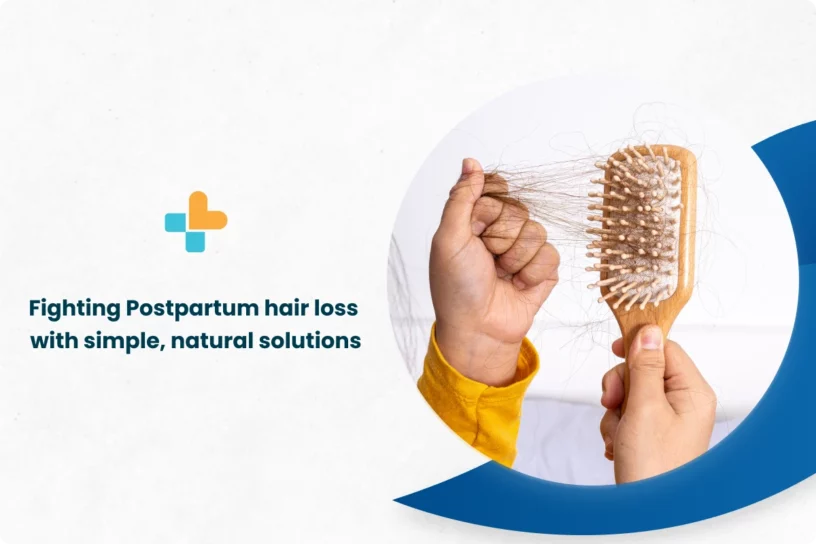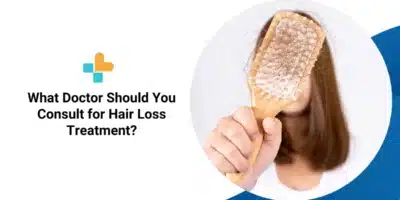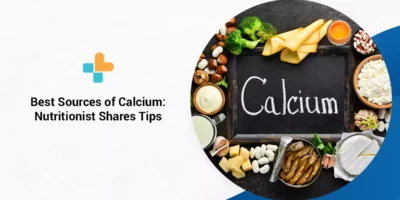Pregnancy and childbirth are amazing experiences, but they can also come with their own set of challenges. One common issue that many new mothers face is postpartum hair loss. This can be a frustrating and distressing experience, but it is important to understand that it is a normal part of the postpartum process. In this article, we will explore the causes of postpartum hair loss, and provide simple and natural solutions to help combat it.
How Your Hormones Change During Pregnancy And Postpartum
During pregnancy, a woman’s body undergoes many changes, including hormonal changes. These hormonal fluctuations can cause a variety of symptoms, including postpartum hair loss.
Why Post Partum Hair Loss is Normal?
During pregnancy, a woman’s body undergoes many changes, including hormonal changes. The hormone responsible for this is estrogen, which helps to keep hair in the growth phase for longer, resulting in thicker hair. However, after giving birth, estrogen levels drop, and this can cause the hair to enter the shedding phase, resulting in hair loss. This is a normal process as the body adjusts to the hormonal changes post-pregnancy. It is also important to note that hair loss during this time can vary from person to person, and some women may experience more or less hair loss than others. In most cases, this hair loss is temporary and will stop within a few months.
How Hormones Affect Your Hair
During pregnancy, a woman’s body undergoes many changes, including hormonal changes. These hormonal fluctuations can cause a variety of symptoms, including postpartum hair loss. The hormone responsible for this is estrogen, which helps to keep hair in the growth phase for longer, resulting in thicker hair. However, after giving birth, estrogen levels drop, and this can cause the hair to enter the shedding phase, resulting in hair loss.
Is Your Postpartum Hair Loss Normal?
It is completely normal for a woman to experience hair loss after giving birth. This is because, during pregnancy, the body enters a state of “resting hair,” where hair growth slows down and the hair on the head becomes thicker. However, after giving birth, the body returns to its normal hormonal state, and this can cause hair to fall out at an increased rate. In most cases, this hair loss is temporary and will stop within a few months.
Home remedies
While postpartum hair loss can be a normal and temporary occurrence, there are some things you can do to help combat it. Here are some natural remedies that may help:
1. Caffeine
Caffeine is known to stimulate hair growth and can be found in many hair growth products. You can also apply caffeine directly to the scalp by using a caffeine-based shampoo or conditioner.
2. Vitamins
Vitamins, such as biotin and folic acid, are essential for healthy hair growth. Incorporating these vitamins into your diet or taking a supplement can help to support hair growth.
3. Coconut Oil
Coconut oil is known for its moisturizing properties and can be used to nourish the hair and scalp. Massage coconut oil into your scalp and leave it on for at least 30 minutes before washing it out.
4. Flax Seed Oil
Flax seed oil is rich in omega-3 fatty acids, which are essential for healthy hair growth. You can take flax seed oil supplements or use it as a hair oil to nourish your hair and scalp.
5. Castor Oil
Castor oil is known for its ability to promote hair growth. It can be used as a hair oil or added to shampoo to help combat hair loss.
What to avoid
In addition to using natural remedies, there are also some things you should avoid to help combat postpartum hair loss.
1. Parabens
Parabens are a type of preservative that can be found in many hair care products. They have been linked to hair loss, so it is best to avoid products that contain them.
2. Sulfates
Sulfates are a type of surfactant that can be found in many shampoos. They have been linked to hair loss, so it is best to avoid shampoos that contain them.
Does Shampoo Stop Hairfall? A Brief Insight
Shampoo is an important part of hair care and can help to remove dirt and buildup from the hair
and scalp. However, it is important to choose a shampoo that is specifically formulated to combat hair loss. Volumizing shampoos that contain ingredients such as caffeine, biotin, and folic acid can help to promote hair growth and support a healthy scalp.
Postpartum hair tips to try
In addition to using natural remedies and avoiding certain hair care products, there are also some tips you can try to help combat postpartum hair loss.
1. Skip the styling
Styling your hair with heat tools, such as flat irons and curling irons, can cause damage and breakage. During the postpartum period, try to avoid styling your hair and instead, opt for a natural look.
2. Eat well
Eating a healthy diet that is rich in vitamins and minerals can help to support hair growth. Incorporating foods such as leafy greens, nuts, and fish can help to provide the nutrients your body needs to support healthy hair growth.
3. Take your vitamins
Taking a prenatal vitamin or a hair growth supplement can help to support hair growth and a healthy scalp.
4. Use volumizing shampoo.
As mentioned before, using a volumizing shampoo that is formulated to combat hair loss can help to support hair growth and a healthy scalp.
In conclusion, postpartum hair loss can be a frustrating and distressing experience for new mothers, but it is important to understand that it is a normal part of the postpartum process. Incorporating natural remedies, avoiding certain hair care products, and following a healthy hair care routine can help to combat postpartum hair loss and support healthy hair growth. Be patient and kind to your body, hair will grow back.
Ayu Health can provide quality healthcare at affordable prices. Contact 636-610-0800 to book an appointment now.
FAQs:
- How can I stop my hair falling out after pregnancy?
Hair loss after pregnancy is a common condition known as postpartum hair loss. It is caused by hormonal changes in the body and can be treated by maintaining a healthy diet and lifestyle, taking prenatal vitamins, and using gentle hair care products. Additionally, it can be stopped by using hair loss supplements like biotin, zinc and vitamin D. Consulting a dermatologist or a trichologist can also be helpful.
2. How to treat postpartum hair loss naturally?
Some natural ways to treat postpartum hair loss include eating a healthy diet rich in vitamins and minerals, taking prenatal vitamins, using gentle hair care products, massaging the scalp to increase blood flow, and practicing stress-reducing techniques such as yoga or meditation.
3. How long does hair loss last after pregnancy?
Postpartum hair loss usually starts around 2-3 months after giving birth and can last for several months. The hair loss usually stops around 6-12 months after giving birth.
4. What foods help with postpartum hair loss?
Eating a diet rich in vitamins and minerals can help promote hair health and may help with postpartum hair loss. Foods that are particularly beneficial include leafy greens, fish, eggs, and nuts.
5. Can postpartum hair loss make you bald?
Postpartum hair loss is a temporary condition that is caused by hormonal changes in the body. While the hair loss can be significant, it is not likely to cause baldness. The hair will typically grow back once the hormonal changes have stabilized. However, if you’re experiencing excessive hair loss, it is always best to consult with a dermatologist or trichologist to rule out any underlying conditions.
Our Hospital Locations
General Surgery Hospitals in Chandigarh | General Surgery Hospitals in Bangalore | General Surgery Hospitals in Jaipur | General Surgery Hospitals in NCR | General Surgery Hospitals in Hyderabad
Our Doctors
General Surgery Doctors in Chandigarh | General Surgery Doctors in Bangalore | General Surgery Doctors in Jaipur | General Surgery Doctors in NCR | General Surgery Doctors in Hyderabad
About the Author

Dr. S. Goel
Dr. S. Goel is a renowned Internal Medicine Specialist currently practicing at Ayu Health, Bangalore. He is a Specialist in Internal Medicine, Diabetes HTN, Paediatric Care, and Family Medicine.




